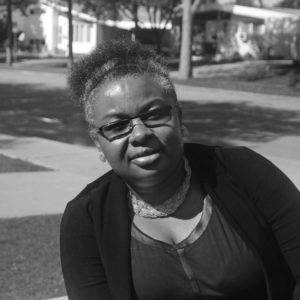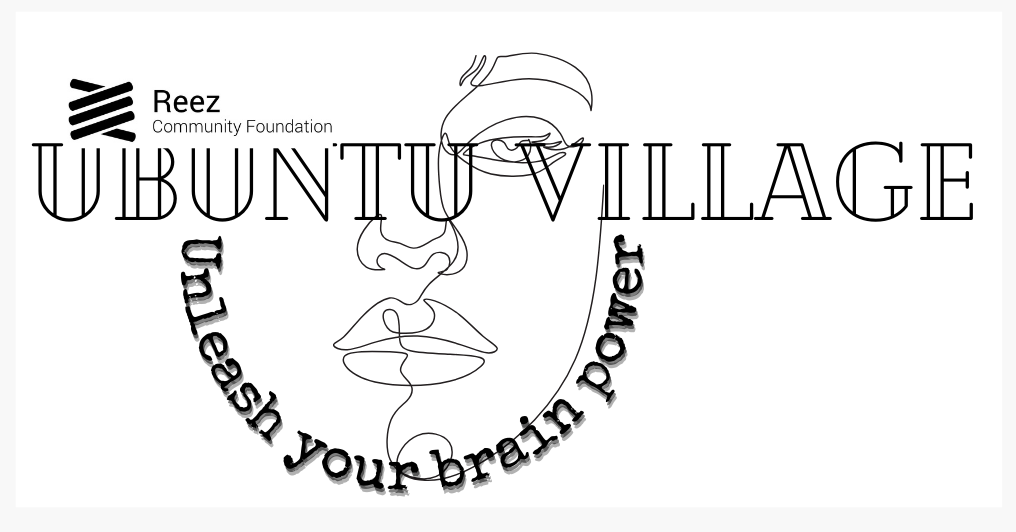On our drive home recently, I took a left turn and my 13 year immediately said, “Mama you just took an L on that”. Surprised, I asked “what is an L?”, “it means you took a loss, he bluntly stated and goes on to explain why, with his signature teenage bluster. “You missed the car directly behind the one you yielded to before getting on the road”, he noted. “In doing so, you drove right in front of an oncoming vehicle that was less than 12ft away, almost causing an accident”, he concluded. Hmmm! Indeed, I realized what just took place as I glanced at the view mirror to observe the car directly behind me.
Why did I not wait a minute longer to allow the second vehicle to go by before the maneuver? On hindsight, I was so absent minded that I did not even see the second vehicle. I certainly did take an L. How many of us do the same in our approach to bearing one another’s burden? How many of us take L’s of omission and/or commission? In this opinion piece, it is worth extending this notion of taking an L over things that are consistent with our priority values and how this contribute to complexity of what the problem looks like over time and as such becomes a critical obstacle to effective resolution.

Equality, fairness and equity are values that most Canadians regard as desirable and fundamental to the state of our democracy. Yet, marginalized communities continue to suffer the consequences of adverse impact discrimination, leading to the conclusion that a lot of people who profess these values as important are repeatedly taking L’s. Mayor Iveson appear to be one of them. He was elected to City Council in 2007 and became the Mayor following the 2013 election. So he has been part of a lot of the decisions that impact on the City’s record on tackling racism including his recent motion on the subject. The case for this motion to be amended was set out in “Effectively Addressing Racism: A City’s Journey” op-ed piece.
He wrote another email to the community further to the one he sent on November 4, following his meeting with BLM and Racism Free Edmonton community representatives. Apart from his updates intended to address three questions, he observed: “anti-racism and other inclusion work cannot move forward without us all stepping back and examining how we can work together in the spirit of collaboration”. This reference to “spirit of collaboration” was also made in his earlier email. So what would the spirit of collaboration look like? It certainly does not feel like the “Spirit of Christmas”!
I have attended at least six or seven community town hall style meetings since September. My sense is that Black and Indigenous communities appear to be exhausted from providing feedback that gets lost in translation and implementation. Merriam-Webster online defined collaboration as cooperation with or working jointly to accomplish a goal. The provision of feedback that was not used or used in a way that was not intended by those who provided it, suggest trust is now certainly an issue. How do we step back and collaborate with an organization that we don’t trust? In other words, in teenage language speak, they have taking L’s too many times to be trusted. Furthermore, they continue to fail to act intentionally to avoid further L’s based on their rear view mirror observation. Put simply, the organization has to earn it, by taking action that are consistent with feedback already received. We referred to this notion as [symple_highlight color=”blue”]“exiting the ring road”[/symple_highlight] in our last opinion piece.
Unfortunately, the drive on the ring road continues with each repeated failure to act effectively, Black and Brown people continue to lift and carry around their inequitable burden one more day. With each day that passes, the burden becomes heavier, more complex and entrenched. Despite this, the City’s understanding of the issues have not improved. For example, it appears that while we all agree on the need to address inequity in our society, we disagree on what it actually looks like and by implication its solutions.
carry around their inequitable burden one more day. With each day that passes, the burden becomes heavier, more complex and entrenched. Despite this, the City’s understanding of the issues have not improved. For example, it appears that while we all agree on the need to address inequity in our society, we disagree on what it actually looks like and by implication its solutions.
This explains why the City Council approved and supported the implementation of a corporate reorganization in 2011 that moved the Diversity and Inclusion Office from the City Manager’s direct remit to Human Resources. In doing so, its focus changed to human resources related policies, procedures and practices to the exclusion of programs and wider corporate policies, procedures and practices. Thus, explains why the Inclusion Framework and Implementation Plan fell silent as soon as they were approved. It also explains why the City Auditor and the associated Audit Committee appear to be very finance focus to the exclusion of variables such as discrimination that ought to impact the meaning of effectively spending tax payers monies.
In spite of these, now that community complaints caused the Mayor and his team to look at their organizational rear mirrors figuratively speaking, his tone was self-congratulatory. We should all celebrate with him and his team that “very few municipalities, let alone major cities, have the kind of resources dedicated and focused on diversity and community investment that Edmonton does. While there is always work that can be done to improve, it is a huge asset and strength in our City that we can build upon”. There was no sense of evaluative perspective of how well these resources have been utilized, from the City Auditor’s perspective. In fact this notion was dismissed with the preceding sentence “in spite of the shortcomings, flaws or improvements that can be made on how we work together”.
In the words of Harvard professor Clayton Christensen, an organization’s capabilities defines its disabilities. Managers naturally assign capable people to to various jobs, including when they have to tackle an innovation problem. However, once they find the right people, too many managers then assume that the organization in which these “capable workers” would work will also be capable of succeeding at the task.” Given the long standing problem with communities of colour, this innovation challenge is yet to be resolved.
There needs to be an analytical disentanglement according to Christensen that recognizes the independent existence of organizational capabilities from the capabilities of the people who work within them. There has been anecdotal incidents of some City staff taking a personal perspective to community complaints even though for the most part these have focused on systemic issues.
The insights expressed by Clayton Christensen in “The Innovator’s Dilemma” is worth examining in detail. He aptly clarified individual and organizational capabilities. Organizational capabilities exist in its processes and values. Its processes are the methods by which people have learned to transform inputs of labour, energy, materials, information, cash and technology into inputs of higher value. While its values are the criteria that managers and employees use when making prioritization decisions. While people are quite flexible, processes and values are not, therefore, the very processes and values that constitute an organization’s capabilities in one context, defines its disability in another. Drawing on studies in the disk drive and computer industries, Christensen presented a framework that offers managers the tools to create new capabilities when the processes and values of their present organization renders it incapable of successfully addressing a new problem. Anti-racism and inclusion are certainly not new problems. They are recurring ones that calls for an innovative approach.
In conclusion, it remains unclear what “stepping back and examining how we can work together in the spirit of collaboration” would look like at this point. However, it surely includes affirming the community’s account of racist acts and structures. Then taking repeated and continuing steps that objectively evidence that affirmation in organizational priorities and decisions. This is something the City of Edmonton have not done. The communities impacted feel that their voices were not included in decision making. We therefore appear to have an impasse. This is going to be an interesting election year! Meanwhile, while politicians repeatedly take L’s, Black, Brown and other disadvantaged individuals and their families continue to crush under the weight of their ongoing losses as they watch their basic aspirations evaporate due to systemic discrimination.
In Solidarity!
Ufuoma
——————————————————————————————————————–
 Ufuoma (who-fo-ma) Odebala-Fregene is the co-founder and Executive Director of Reez Business Solutions Inc. (www.reezimmigration.com). She is an experienced legal professional with extensive background in Canadian immigration law, policy and practice; entrepreneurship and human rights compliance.
Ufuoma (who-fo-ma) Odebala-Fregene is the co-founder and Executive Director of Reez Business Solutions Inc. (www.reezimmigration.com). She is an experienced legal professional with extensive background in Canadian immigration law, policy and practice; entrepreneurship and human rights compliance.
In addition to her work with individual clients, Ufuoma is the host, researcher and publisher of the immigrant compass podcast (www.theimmigrantcompass.com). In the past she worked with Race Equality Commission of England & Wales and its replacement organization, the Equality and Human Rights Commission of England and Wales. In this role she engaged extensively with UK’s local government and health organizations on their change management and organisational development efforts through the use of equality and human rights impact assessment tools.
Ufuoma is a founding member of Savanna Skills Corporation now trading as Reez Community Foundation. Reez is an organization dedicated to alleviating poverty by fostering just and economic resilient communities by building capacity to attain career self-reliance through focused actions on employment, education, volunteering and ultimately self- employment with particular emphasis on worker-owned businesses (www.reezcommunity.org). She is also a Steering Committee member of the Edmonton Financial Empowerment Collaborative, an Executive member of BLM Yeg & Area and a member of the Church of Jesus Christ and Latter Day Saints. The common message in all her efforts is to make progressively tangible positive improvements towards resilience in the lives of those around her, her communities and herself. She can be reached on twitter @ufuomaof or by email: fregene@shaw.ca. For a consolidated glimpse of Ufuoma’s ongoing projects, please visit www.ufuomaofregene.com

